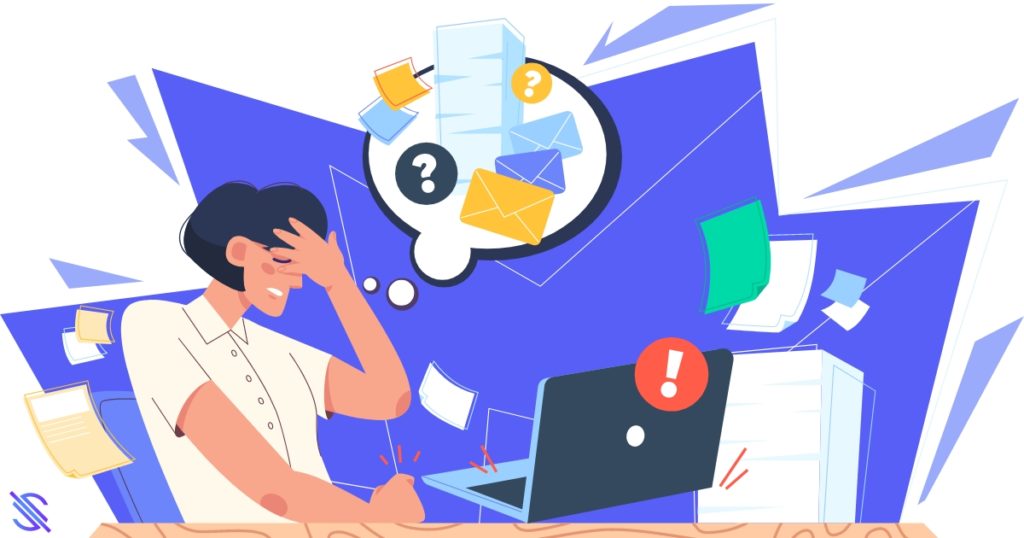
We’ve all been there—feeling frustrated and overwhelmed by the challenges of learning something new. Getting where you want to go can be hard, whether it’s learning a new language, understanding a complicated idea, or developing a skill. But overcoming these barriers to learning is possible, and this blog post will provide you with some proven strategies that can help.
What are the barriers to learning?
Before we can look at strategies for overcoming learning challenges, it’s important to first identify what those barriers are. Some of the most common barriers to learning include:
- Lack of motivation. This is one of the most common barriers to learning and can be a difficult one to overcome. It’s important to identify the factors that are causing the lack of motivation and address them to keep learning.
- Poor study habits. It’s important to develop good study habits to make the most of the time spent learning. Poor study habits can lead to a lack of progress or feeling overwhelmed by the material.
- Inadequate resources. A lack of access to the right resources can be a major barrier to learning. It’s important to make sure that you have the right tools and materials to help you learn.
- Poor time management. Time management is an important part of learning. If you don’t manage your time properly, you may find it difficult to stay on track and make progress.
- Difficulty understanding the material. Learning is about understanding the material, but if it’s difficult to understand, it can be a major barrier to learning. It’s important to identify the problem and find a way to make the material easier to understand.
- Procrastination. Procrastination can be a major barrier to learning. It’s important to recognize when you’re procrastinating and take steps to address it.
Identifying and overcoming challenges to learning
Now that we’ve identified some of the most common barriers to learning, it’s time to look at strategies for overcoming them. Identifying the barriers is the first step, but it’s also important to understand how to overcome them. Here are some strategies for overcoming the barriers to learning:
- Set realistic goals. It’s important to set achievable goals that are realistic and achievable. This will help to keep you motivated and on track.
- Take regular breaks. Taking regular breaks can help prevent burnout and keep you focused on the task at hand.
- Use visual aids. Visual aids can be a great way to help you better understand and remember the material.
- Break down tasks into smaller chunks. Breaking down learning tasks into smaller, more manageable chunks can help make the learning process less overwhelming.
- Get organized. Developing an organized learning environment is an essential part of the learning process. Make sure to keep materials and resources organized to make the most of your learning time.
- Ask for help. Don’t be afraid to ask for help if you’re struggling with a particular concept or task.
The importance of feedback
You should make sure you’re getting regular feedback from your instructor or mentor, as this is a crucial component of the learning process. Hearing what others think can help you figure out where you went wrong. Also, it might provide helpful feedback on your progress.
Strategies for overcoming learning challenges
Once you know what’s stopping you from learning, it’s important to come up with ways to get past it. Here are some strategies that can help:
- Develop a plan. It’s important to develop a plan for learning that includes clear objectives and goals. This will help keep you on track and ensure that you’re making progress.
- Practice. Practicing the material is an essential part of the learning process. Make sure to set aside time for practice and review to ensure that you’re mastering the material.
- Take notes. Taking notes can help you better understand and remember the material. It’s also a great way to keep track of your progress.
- Utilize technology. Technology can be a great tool for learning. Utilizing technology can help make the learning process more efficient and effective.
- Ask questions. If you’re having trouble with something, don’t be afraid to ask questions. By asking questions, you can identify any areas that require clarification or review.
Developing employees’ skills
For organizations, developing employees’ skills is an important part of the learning process. It’s important to figure out what skills employees need to work on and give them the right tools and support to help them do so.
By giving employees the right tools and help, the learning process can be less overwhelming, and employees can get the most out of their learning experience. It’s also important to provide regular feedback and support to help employees stay motivated and on track.
The role of technology in learning
Technology is a great tool for learning. Using technology can help make the learning process more effective and efficient. It can also help to give employees the right tools and resources to help them learn and grow their skills.
Technology can also be used to provide employees with feedback and support. This can help keep employees motivated and on track with their learning.
Mentoring and coaching
Mentoring and coaching can be great tools for learning. It’s important to identify mentors and coaches who can provide valuable insight and support. Mentoring and coaching can help find problems and give employees the tools and support they need to do well.
Mentoring and coaching can also help keep employees motivated and on track with their learning.
Creating a learning environment
An important part of learning is creating an environment that is good for learning. It’s important to create an environment that is comfortable and safe and that encourages exploration and experimentation.
Creating a learning environment can also help keep employees motivated and on track with their learning. It’s important to provide employees with the resources and support they need to succeed.
Overcoming barriers to learning can be a challenging process, but it’s also a rewarding one. It’s important to identify the barriers and develop strategies for overcoming them. Utilizing technology can help make the learning process more efficient and effective. By following the strategies outlined in this blog post, you’ll be well on your way to overcoming the barriers to learning and achieving success.
For learning and development.
Sign up at simphini.com and let us know how we can help.
